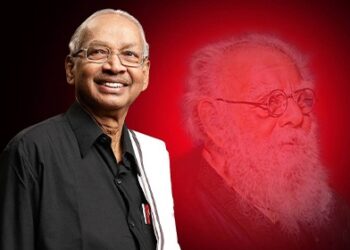After the ‘meticulous’ demolition of Babri Masjid for the construction of Ram temple in Ayodhya, the Parliament enacted ‘The Places of Worship Act’ of 1991. The statute prohibits conversion and preserves the character of religious sites as of August 15, 1947. It was said that the statute is not applicable in respect of the dispute on the demolition at Ayodhya. It is needless to point out that the catastrophe happened in Ayodhya should not be enacted again anywhere in the country.
The religious cult that have scant respect for the enactment of the Parliament have started to recommence the ‘right’ claiming drama based on the ‘faith’ in them. The move has further led to convert the worship places in Gyanvapi mosque, Varanasi (Uttar Pradesh), Khwaja Moinuddin Chisti, Ajmer (Rajasthan), Shahi Jama Masjid, Sambhal (Uttar Pradesh) and the like. The ‘faith’ holders, have succeeded in initiating the survey for the existence of the present structures in the past in the stake claiming places.
Despite the prevalence of a statute for the continuance of the present worship as such the ‘faith’ holders, in Sambhal have moved to a stage of conducting survey in the place. The purpose of the Parliamentary enactment is defeated by the ‘faith’ holders. If things continue to happen like this, there could not be any single worshipping place that could continue as such. Many of the present worshipping places of such ‘faith’ holders once belonged to Buddhism in the form of vihars. Will it be proper to demolish the present structures to bring back the ancient ones by conducting surveys? Any litigation, even if it is genuine, must not be invoked in the interest of peace and harmony of the people.
The apex court of the country has intervened through its direction that the trial court should not hear the case till the upper court gives further direction. The apex court has clarified that it has ‘not expressed any opinion’ on the merits of the matter, but the Chief Justice of India verbally said “we want peace and harmony”. The clarification of the CJI has provided much hope for positivity.
More than this, the case pertaining to the validity of the Places of Worship Act 1991 has been pending for the last four years. Delivery of a verdict at the earliest will decide on the unnecessary turmoil in the stake claiming sites. The havoc and countrywide unrest and unlawful activities continued after the demolition of Babri Masjid should not re-occur. The purpose of the enactment and the spirit behind it has to be ensured by the Supreme Court of India.
The regrettable thing is that the rulers at the Union government have not expressed anything about the move of the ‘faith’ holders even prior to the issue sub-judice. The stony silence observed over the issue, like on many other vital issues affecting peace and harmony of the country arouses doubt over the integrity of the saffron rulers.
The country celebrates 75 years of government abiding by the Constitution. The core of the Constitution as briefed in its Preamble must be ensured by all means. Let the Union Government respect the noble principle of the spirit of fraternity and secularism, resolved by the people of the country besides the Preambular virtues and parts of the Basic structure of the Constitution.
Hearty Greetings to our beloved Editor-in-Chief
Asiriyar Dr.K. Veeramani
on his 92nd Birthday
– Members of The Editorial Board









